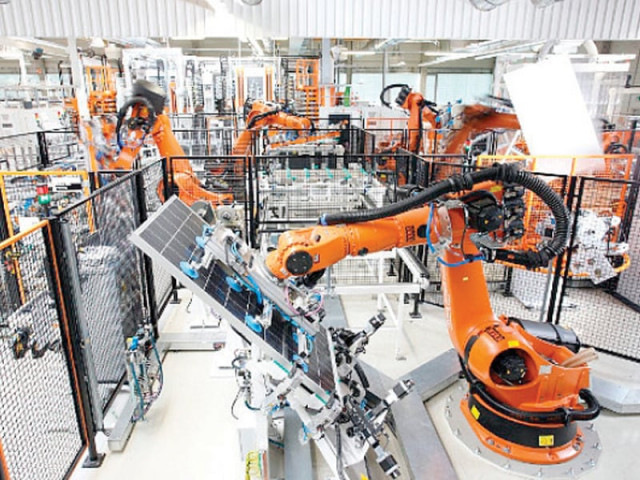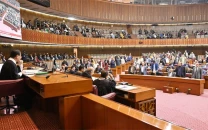Renewable energy: Pakistani company to market Canadian Solar’s modules
Nizam Energy signs strategic partnership with global solar power giant

Nizam Energy – a subsidiary of H Nizam Din and Sons, which has run multiple businesses since 1869 – announced its decision to enter into a strategic partnership with Canadian Solar at a press briefing on Monday. Canadian Solar is one of the world’s largest solar module manufacturers, with revenues touching $1.9 billion in 2011.
Nizam Energy will act as a distributor of Canadian Solar’s products in Pakistan, besides providing training and undertaking capacity building of certified installers and engineers in the country.
“We want to create awareness about substandard and uncertified solar products currently available in Pakistan. They lead to a loss of confidence in solar energy products. We are going to offer quality products at competitive prices backed by Canadian Solar’s warranties,” said Nizam Energy Director Usman Ahmed.
Replying to a question, Ahmed cited the example of a farmer he met during his recent visit to Sukkur. “He spends Rs150,000 a month to run his diesel-powered tube-well. In contrast, our tube-well’s one-time cost is Rs1.2 million. It means he can recover his investment in just eight months if he decides to buy our product.”
Speaking to The Express Tribune, Ahmed said a solar-powered light emitting diode (LED) manufactured by Canadian Solar and distributed by Nizam Energy would cost Rs700, significantly higher than the price of a normal bulb. “However, it is a one-time expense. The LED is going to last 50,000 hours at least,” he said, suggesting that the Rs700 LED would not need a replacement for up to six years.
Ahmed said the per-watt cost of solar energy was roughly $4 four years ago. “But prices have crashed since then. This is the best time for Pakistanis to invest in solar energy as much as possible,” he claimed, given that solar power can now be produced at a cost of 84 cents per watt.
Speaking on the occasion, Canadian Solar’s Global Emerging Markets Director Bob Zhang said his company operates in 50 countries and was among the top five global solar module suppliers in 2011. Canadian Solar shipped 1.34 gigawatts (GW) of solar equipment in 2011. Its supplies for the current year are expected to be 1.8GW.
To date, Canadian Solar has established seven wholly-owned manufacturing subsidiaries in China, with a module capacity of 2.05GW in 2011. In the last 10 years, Canadian Solar has deployed over 3GW of solar modules in over 50 counties. In 2011, one of the world’s largest solar farms in Germany was deployed with 148 megawatts of Canadian Solar modules.
Published in The Express Tribune, November 13th, 2012.



















COMMENTS
Comments are moderated and generally will be posted if they are on-topic and not abusive.
For more information, please see our Comments FAQ